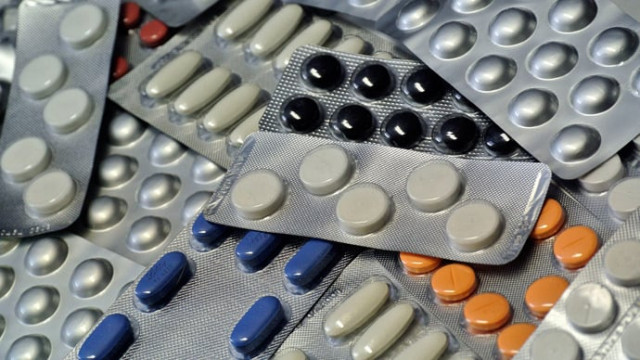Common medicines disappear from market
Some pharma companies selling drugs selectively or at exorbitant prices

As waterborne and mosquito-borne disease break out in the aftermath of relentless rains and devastating floods in Sindh, particularly in Karachi, medicines for common ailments, including fever, cold, stomach ache and cough, have virtually disappeared from the market. This situation is concerning for public and private hospitals, medical practitioners, pharmaceutical companies, and citizens at large.
Floodwater has not receded in many areas of Sindh, which has caused outbreak of various epidemics in the province. Philanthropists, welfare organisations and citizens are donating besides other things medicines for common ailments. Karachi has also been experiencing an influx of flood-stricken people from rural Sindh who are already afflicted with waterborne diseases.
The medical camps set up by the Sindh Health Department at the shelters in Karachi are treating a huge number of people suffering from dengue, malaria, cholera, diarrhea, typhoid, and eye and skin infections, on a daily basis, according to doctors.
This has created a huge increase in the demand for common medicines. Taking advantage of the situation, some pharma companies have demanded a 40% increase in the prices of their products, sources told The Express Tribune while adding that these companies are either hoarding stocks or selling them only to retailers which has led to a shortage of the medicines in the market.
Some wholesalers have blamed continues appreciation of the US dollar for the shortage, saying that the depreciating rupee negatively impacts the purchase of raw material for medicines.
While doctors are dealing with an unprecedented influx of patients suffering from these diseases at different hospitals and clinics of the metropolitan city, the medicines they prescribe are neither available in their health facilities nor at any medical store.
Common medicines, such as Ibuprofen, Panadol, Arinac, Entamizole, Tasilex, Somogel, Apiol, Tegral, have virtually disappeared from the wholesale market. These have also become a rarity in medical stores.
According to sources, the medicines crisis at Jinnah Hospital, Civil Hospital, World Organization for Children's Health and Abbasi Shaheed Hospital has also multiplied problems for citizens. According to medical practitioners, the healthcare system is being severely impacted by the shortage of medicines for cough, fever, cold, stomach ache and epilepsy.
Sources told The Express Tribune that some pharmaceutical companies are also involved in black-marketing as they sell these drugs only to selected consumers or at exorbitant prices. A 25-tablet Ibuprofen box is being sold at Rs680. A box of 20 strips of Panadol, which was earlier being sold at Rs340, is now available at Rs700. Similarly, a 10 strips Arinac box is selling at Rs850, while a 10 strip of Apiol is available at Rs1,140.
Published in The Express Tribune, September 10th, 2022.



















COMMENTS
Comments are moderated and generally will be posted if they are on-topic and not abusive.
For more information, please see our Comments FAQ